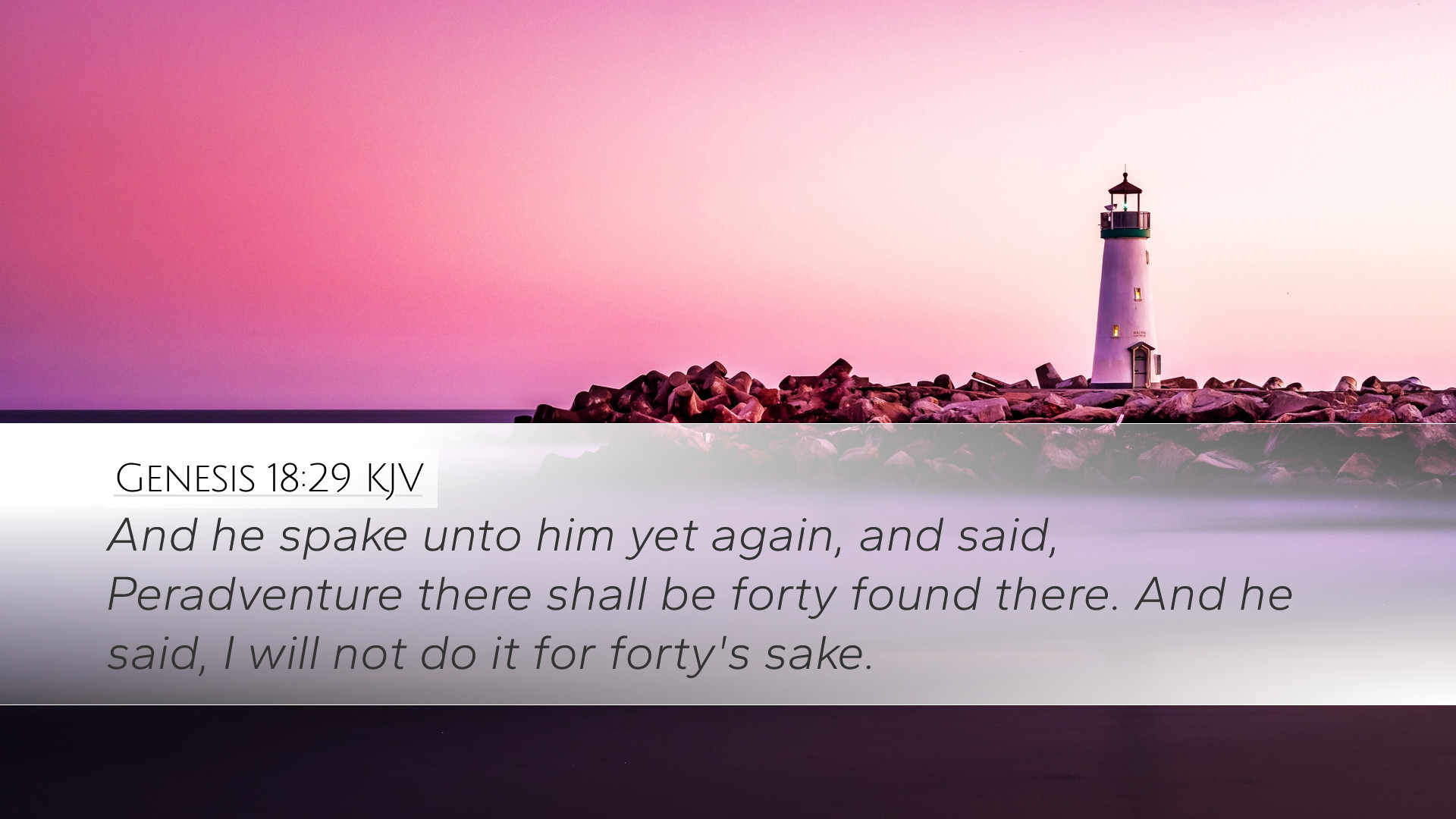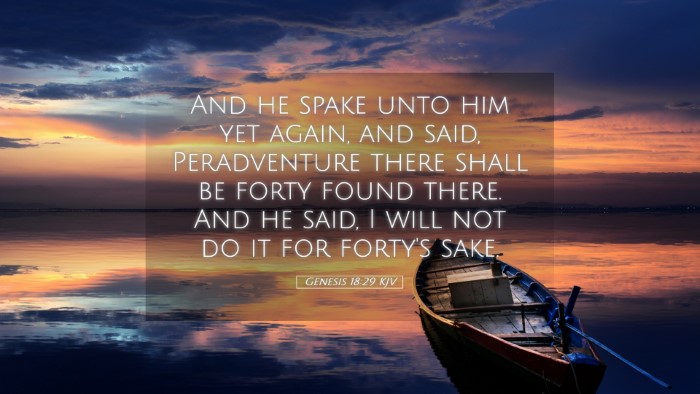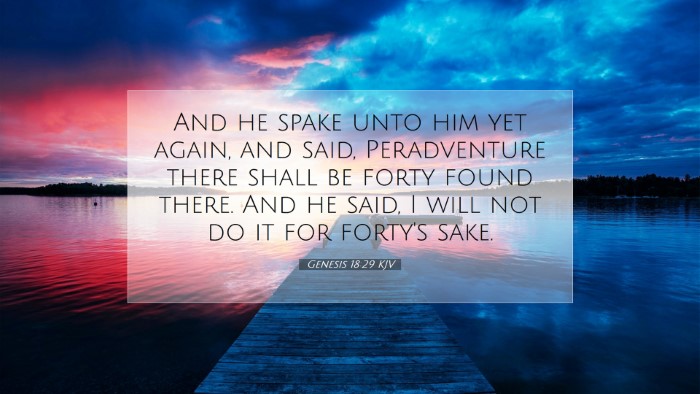Commentary on Genesis 18:29
Verse Text: "And he spake unto him yet again, and said, Peradventure there shall twenty found there. And he said, I will not destroy it for twenty's sake."
Introduction
This verse encapsulates a significant moment in the dialogue between Abraham and God regarding the fate of Sodom and Gomorrah. It showcases Abraham's intercessory role and his boldness before God, as well as God's gracious willingness to relent from destruction based upon the presence of a minimum number of righteous individuals. This commentary seeks to illuminate the implications of this exchange, drawing insights from notable public domain commentaries.
Abraham's Intercession
According to Matthew Henry, this interaction exemplifies Abraham's deep concern for the righteous among the wicked. His advocacy reflects a compassionate spirit and a sense of responsibility for the well-being of others. Abraham's inquiry, “Peradventure there shall twenty found there,” illustrates his gradual approach in negotiating with God. It demonstrates a model of prayer and intercession where believers might seek to bring the needs of others before the throne of grace.
Importance of Intercession
Albert Barnes emphasizes the importance of intercession in the life of the faithful. Through his dialogue with God, Abraham exemplifies how believers are called to stand in the gap for others. Even as God remains just in His judgments, He is also merciful and willing to listen to the pleas of His servants. The presence of a few righteous is sufficient for God to withhold judgment, which speaks volumes about His character as a protector of the innocent.
The Nature of God’s Justice and Mercy
In exploring the dynamics of divine justice and mercy, Adam Clarke notes that God's willingness to spare Sodom for the sake of a mere twenty indicates His desire to exercise mercy. Clarke points out that the very act of negotiation with Abraham reflects God’s attitude toward humanity—He is responsive to their pleas.
God’s Willingness to Relent
The fact that God agrees not to destroy the cities for twenty's sake illustrates a profound theological truth: genuine righteousness can affect God's dealings with communities. Henry posits that this conversation illustrates God’s judicial proceedings: He meticulously considers the presence of righteousness before executing judgment. Clarke adds that this sets a precedent, demonstrating that God’s judgments are not arbitrary but are instead grounded in His character of justice tempered by mercy.
Theological Implications
This verse raises essential questions about the nature of sin and the existence of righteousness in society. Barnes articulates that the existence of even a small number of righteous individuals can lead to the preservation of a community, highlighting a principle relevant to the church today. It challenges congregations and individuals alike to consider their role in intercession and their influence in society.
Righteousness in Community
The idea that God would spare Sodom for the sake of twenty righteous serves as a reminder of the weightiness of righteous living. Henry points out that righteousness in individuals can have a cascading effect on families and communities, leading to a more significant moral influence. The practical application for today's believer is to live righteously and to intercede earnestly for those around them.
The Role of Numbers in God’s Judgment
This negotiation process where Abraham asks about specific numbers can be reflective of a broader theological inquiry concerning how God measures righteousness. Clarke discusses the implications of asking, “How many?” as a representation of God's patience and the human realization of collective responsibility.
Collective Responsibility
Barnes suggests that this verse serves as a call to community engagement. If God is willing to spare a city for the sake of a few righteous individuals, then how much more ought believers to take seriously their impact on their societies? It challenges the notion of isolationism and calls for proactive engagement in societal systems.
Tension Between Justice and Cleansing
While this exchange presents God as patient and merciful, it also foreshadows the eventual destruction of Sodom. Henry notes that mercy, while available, is not infinite. God's justice necessitates a response to continued unrepentant wickedness. Thus, the tension between God's two attributes—justice and mercy—is put into sharp relief in this narrative.
Conclusion
Genesis 18:29 serves as a profound teaching moment about intercession, the nature of God, and the dynamics of righteousness within a community. It challenges believers today to consider their role in the world around them as advocates for holiness and justice. By gleaning insights from the early commentators, one can appreciate the depth of God's mercy juxtaposed with His demand for righteousness. The narrative exemplifies God's gracious disposition towards humanity while upholding His ultimate standards of justice.


